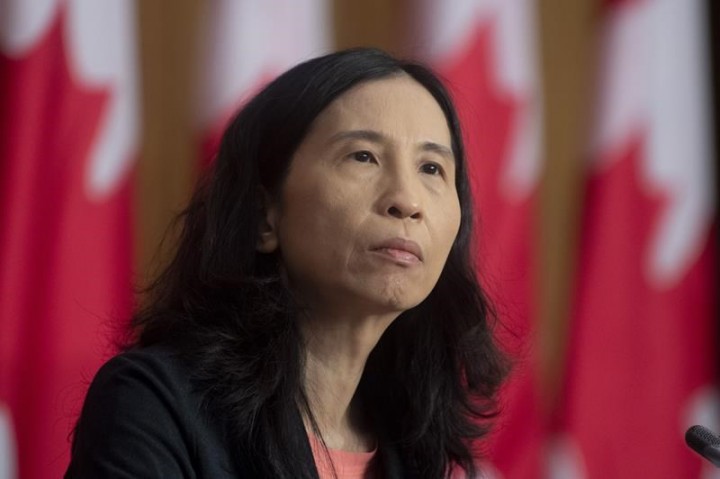OTTAWA — Plans are underway to sift through Canadian sewage to test for and measure monkeypox, polio and other potential health threats, the country’s chief public health officer said Friday.
Over the course of the COVID-19 pandemic, wastewater detection became a key way to track the spread of the virus, especially as free lab tests for individuals were phased out for all but a few in later waves.
Dr. Theresa Tam said the experts at the National Microbiology Lab have now discovered a promising approach to detect monkeypox in wastewater and will use the infrastructure developed during the pandemic to look for it.
“Moving forwards, it could form part of our monitoring of the disease activity going up and down across the country,” Tam said at a media briefing.
Tam said the method is complicated, but they’ve landed on something that can “probably” be used more broadly. How that monitoring fits into the Public Health Agency of Canada’s surveillance efforts on monkeypox is not yet clear.
The monkeypox disease comes from the same family of viruses that cause smallpox, which the World Health Organization declared eradicated around the globe in 1980.
Cases of monkeypox began to appear around the world in non-endemic countries in May.
Just this week the number of Canadian cases surpassed 1,000, though there are early signs the virus may now be spreading at a slower rate, Tam said.
The Public Health Agency of Canada also intends to start testing for polio as “soon as possible” after U.S. health officials found the polio virus in New York City’s wastewater.
The devastating virus was eradicated from Canada in 1994 and until very recently has not been found in the United States since 1993. Cases have now freshly emerged in Western nations with traditionally high rates of vaccinated people.
A positive case was discovered in New York last month.
The presence of the polio virus in the city’s wastewater suggests the virus is likely circulated locally, health authorities from the city, New York state and the U.S. federal government said Friday.
“We’re already starting to look at what the options are,” Tam said of monitoring for polio in Canada.
Polio tests are just now coming online in Ontario, said Eric Arts, a microbiology and immunology professor at Western University.
The COVID-19 pandemic proved how useful waste can be compared to person-by-person tests, he said, especially when it comes to early detection.
“Instead of testing hundreds of thousands of people kind of randomly to determine if they’re infected with a specific pathogen, or one that we don’t even know is circulating, you can just get a wastewater sample and test 100,000 people with one test,” he said.
Wastewater surveillance can be adapted for other things as well, she said. Even before the pandemic, Tam said the public health agency was looking at ways to scan for antimicrobial resistant organisms, or superbugs as they’re often called.
Wastewater detection is still imperfect though, Tam warned.
“You’re dealing with a slurry of many things with a lot of DNA, RNA, all sorts of things,” Tam said, putting it politely.
That slurry includes countless viruses and virus mutations. Some vaccines, like the oral vaccine for polio given in some countries that includes a live, attenuated virus, can also be confused with the real thing in a wastewater sample.
“It’s not terribly easy,” she said.
Different countries use different methods, Tam said, and even within Canada there’s a lot of innovation happening.
“I think one of the roles of our lab is to then look at the best methods and try and bring some standardization and guidance to that testing,” she said.
This report by The Canadian Press was first published Aug. 12, 2022.
— With files from Adina Bresge in Toronto and The Associated Press
Laura Osman, The Canadian Press
Related


































